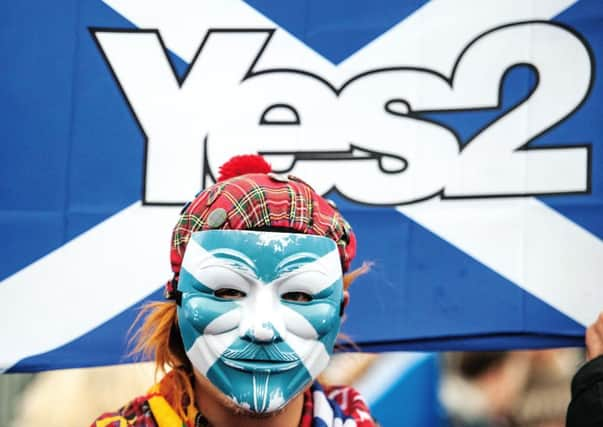Leader: No campaign needs figurehead '“ just in case


At present, political opposition to independence is loud and clear. The Conservatives, Labour and the Liberal Democrats have all made strong objections under their own banners.
But if the fight became one of Yes or No, as it did before the 2014 referendum, who would speak for No this time around? The cross-party campaign against independence successfully argued that Scotland and the rest of the United Kingdom would be “Better Together”, as the slogan stated, but for the parties who joined together, the name could hardly be less appropriate. The damage done to the Labour Party in Scotland, for instance, by sharing a platform with the Conservatives, contributed to its virtual wipe-out at Westminster a year later. Would Labour campaign alongside the Conservatives again? Right now, that seems unimaginable.
Advertisement
Hide AdAdvertisement
Hide AdAlistair Darling, the figurehead of the No campaign last time, has said that he believes Sturgeon is bluffing, in a game of brinksmanship with Prime Minister Theresa May in a bid to get a better Brexit deal for Scotland. He might well be right. In which case, why worry about finding a campaign leader who will not be needed?
If this isn’t a mistake, then it is certainly a strategy with significant risk. The First Minister is setting the agenda, and has already gone further down the road towards indyref2 than many would have believed likely. It might be a shrewd calculation that she will fail if she calls a referendum, based on current voting intentions, but that would ignore the momentum she could achieve once a campaign began – momentum which could be unchecked if the No campaign is ill-prepared.
It would make more sense for the front previously known as Better Together to put together a contingency plan, by way of insurance, even if that plan never has to be put into place.
And if a leader has to be found, the most obvious choice would be Ruth Davidson, with the Conservative leader’s rise in prominence attributable to her firm pro-Union position. This, however, would be an even bigger risk than no leader at all, as it could fatally fracture the No campaign by alienating Labour voters.
A leader has to be found from beyond party politics. Identifying that person will be hard enough, and persuading him or her to devote up to two years of their life to the relentless pressures the role involves is another matter entirely.
The selection process alone could be a lengthy affair. And the longer it goes on, the more ground is lost. The stakes are too high for this kind of gamble.